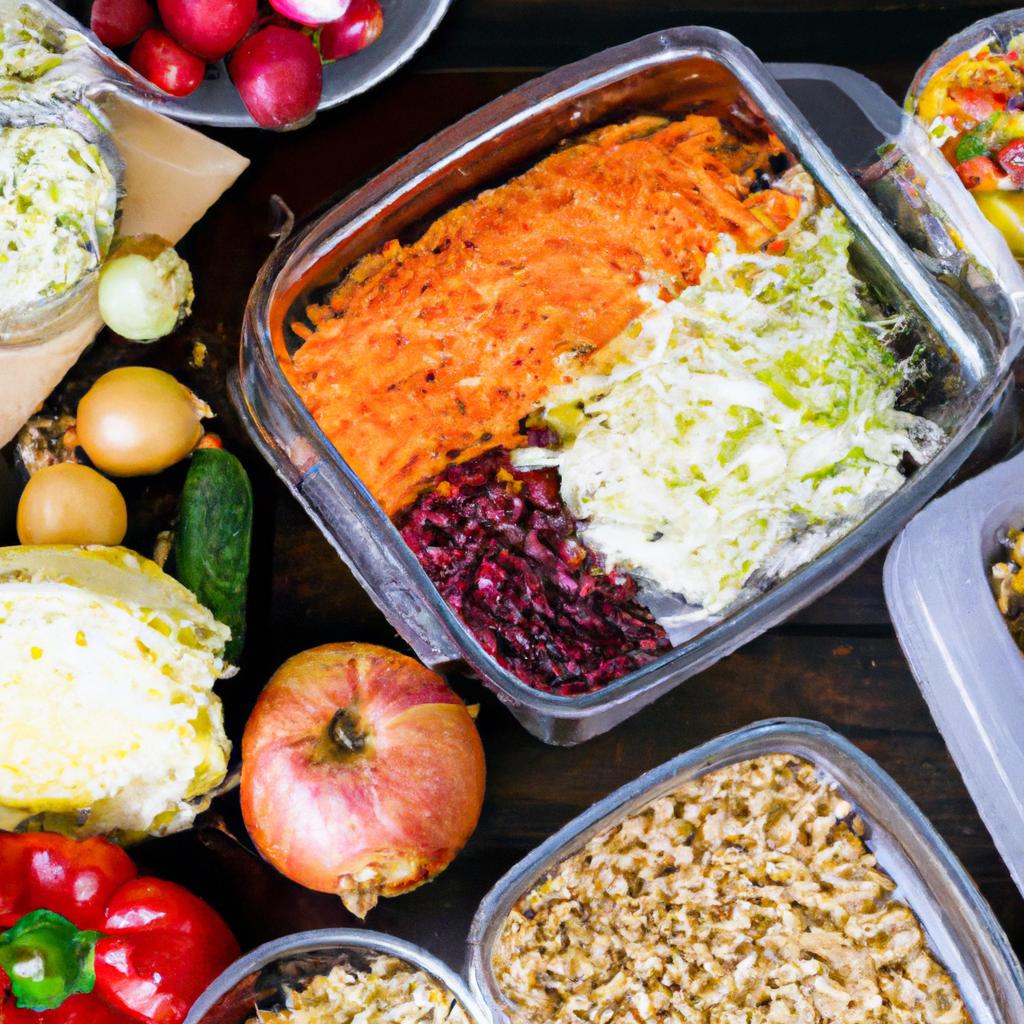**”The Role of Meal Planning in Reducing Food Waste: How Smart Strategies Can Help You Eat Healthy While Saving Money and the Planet”**
# The Role of Meal Planning in Reducing Food Waste: How Smart Strategies Can Help You Eat Healthy While Saving Money and the Planet
Food waste is a significant issue that affects not only our wallets but also the environment. The United Nations Food and Agriculture Organization estimates that approximately one-third of all food produced globally is wasted. This staggering statistic underscores the urgency of finding effective strategies to minimize waste while promoting healthier eating habits. Meal planning emerges as a powerful tool in this endeavor. By organizing meals in advance, individuals can reduce food waste, save money, and make healthier choices. In this blog post, we’ll explore the role of meal planning in reducing food waste, provide nutrition tips, exercise advice, and highlight the numerous health benefits associated with this practice.
## Understanding Meal Planning
### What is Meal Planning?
Meal planning involves the process of organizing meals in advance to ensure a balanced diet while minimizing food waste. This can include deciding what to cook for the week, preparing grocery lists, and even batch-cooking meals ahead of time. The core idea is to align food purchases with actual consumption, reducing the likelihood of unused ingredients going bad.
### The Importance of Meal Planning in Reducing Food Waste
By planning meals, individuals can make informed decisions about what ingredients to buy and how to use them effectively. This foresight not only curtails excess purchases but also encourages creativity in using leftovers. When every ingredient has a purpose, the chances of food waste significantly diminish.
## Nutrition Tips
### Balanced Meal Composition
One of the primary benefits of meal planning is the ability to create balanced meals that include a variety of food groups. A well-structured meal plan should consist of:
– **Fruits and Vegetables:** Aim for a colorful variety to ensure a range of nutrients.
– **Whole Grains:** Incorporate foods like quinoa, brown rice, and whole-grain bread for fiber.
– **Protein Sources:** Include lean meats, fish, legumes, and plant-based proteins to support muscle health.
– **Healthy Fats:** Utilize sources like avocados, nuts, and olive oil for heart health.
### Portion Control
Meal planning allows you to control portion sizes effectively. By preparing meals in advance, you can serve appropriate portions that meet your nutritional needs without encouraging overeating. This approach not only aids in maintaining a healthy weight but also helps to prevent leftover food from going to waste.
## Exercise Advice
### Incorporating Physical Activity
While meal planning focuses primarily on nutrition, it’s vital to integrate exercise into your lifestyle for overall health. Consider the following strategies:
– **Schedule Workouts:** Just as you plan meals, schedule your workouts for the week. This helps establish a routine and ensures that exercise becomes a priority.
– **Choose Active Meal Preparation**: Engage in physical activities while preparing meals. Chopping vegetables, moving around the kitchen, and cleaning up can all contribute to your daily activity levels.
– **Combine Meals with Active Socializing:** Invite friends or family over for a cooking night. Not only does this make meal prep enjoyable, but it also encourages physical activity through movement and collaboration.
## Health Benefits
### Physical Health
Meal planning encourages healthier eating habits, which have a direct impact on physical health. Consuming a balanced diet rich in nutrients can lower the risk of chronic diseases such as obesity, diabetes, and heart disease. Moreover, reducing food waste contributes to a more sustainable food system, which can benefit public health in the long run.
### Mental Well-being
Meal planning can also contribute to improved mental well-being. The act of organizing meals reduces decision fatigue and stress associated with last-minute cooking or unhealthy takeout choices. Knowing that you have nutritious meals ready to go can offer peace of mind and create a positive relationship with food.
### Environmental Impact
Reducing food waste through meal planning has a significant environmental impact. When food waste decomposes in landfills, it produces methane, a potent greenhouse gas. By minimizing waste, you contribute to a healthier planet and promote sustainable food practices. This is particularly important in the face of climate change, as our food choices directly influence ecological balance.
## Conclusion
In summary, meal planning is an effective strategy for reducing food waste, promoting healthy eating, and saving money. By organizing meals in advance, individuals can create balanced diets, control portions, and incorporate physical activity into their routines. The health benefits extend beyond physical well-being, positively influencing mental health and contributing to environmental sustainability. By embracing meal planning, not only can you enhance your personal health, but you can also play a vital role in protecting our planet for future generations.















Post Comment